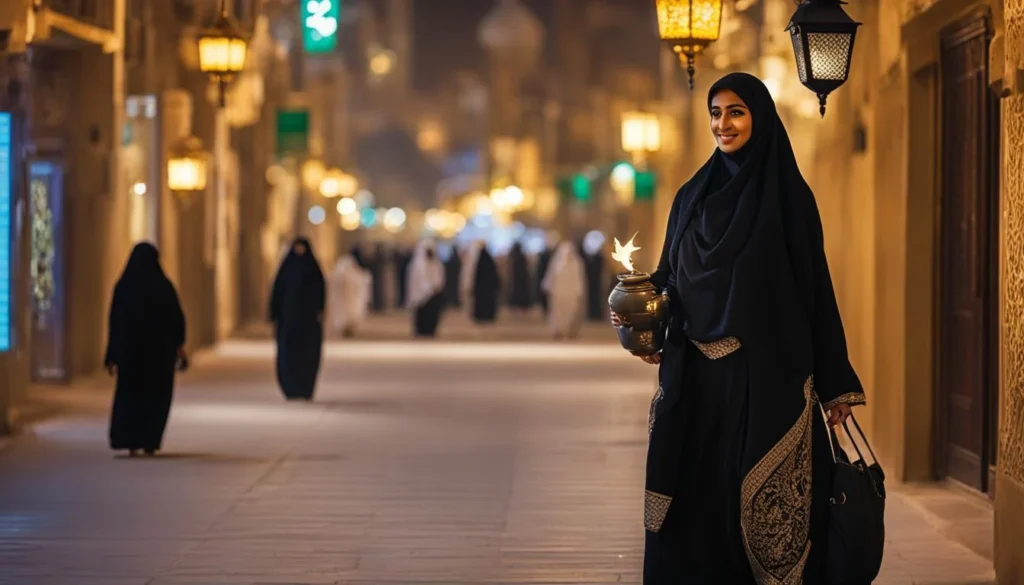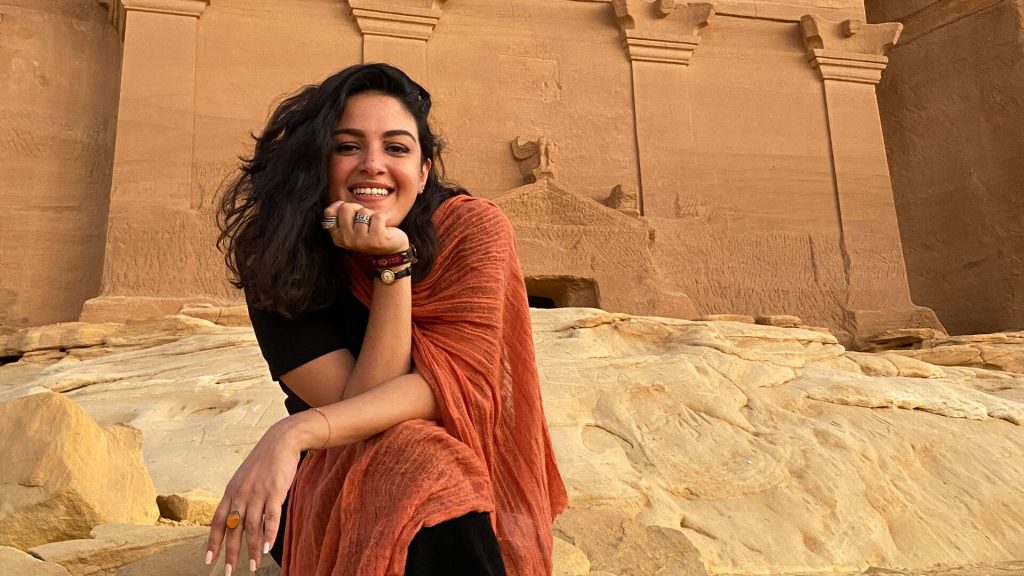Introduction
Saudi Arabia, a nation historically shrouded in mystery and tradition, has recently opened its doors to international tourism, inviting travelers to explore its rich cultural heritage, stunning landscapes, and modern cities. For women considering a journey to this Middle Eastern kingdom, understanding the unique cultural norms and expectations is essential for a rewarding and respectful experience. This article delves into the experiences of female travelers in Saudi Arabia, offering insights and practical tips to navigate the country’s evolving landscape.
A Changing Landscape for Female Travelers

In recent years, Saudi Arabia has undergone significant social and economic reforms under the Vision 2030 initiative, aimed at diversifying the economy and promoting cultural exchange. One notable change is the introduction of the tourist e-visa in 2019, which has made it easier for travelers from around the world to visit. For women, these reforms have brought about changes that impact their travel experience:
- Dress Code: While the traditional abaya (a loose-fitting black cloak) was once mandatory for all women, regulations have relaxed. Female visitors are now expected to dress modestly, covering shoulders and knees, but wearing an abaya is no longer compulsory. However, many women choose to wear it as a sign of respect for local customs.
- Travel Independence: Previously, women required a male guardian’s permission to travel. Today, women over the age of 21 can travel independently without such restrictions, reflecting a shift towards greater autonomy.
- Public Spaces: Gender segregation in public spaces has been relaxed in many areas, allowing women to attend concerts, dine in mixed-gender restaurants, and participate more freely in public life.
Experiences of Female Travelers
To gain a deeper understanding of what it’s like to travel as a woman in Saudi Arabia, we spoke with several female travelers who recently visited the country. Their experiences highlight the diversity and complexity of navigating this evolving society.
Emma’s Journey: Embracing the Unexpected
Emma, a photographer from the United Kingdom, visited Saudi Arabia in 2023. She was initially apprehensive due to media portrayals of the country but found her experience to be enlightening.
“I was surprised by the warmth and hospitality of the people,” she recalls. “As a woman traveling alone, I felt safe and respected. The locals were curious and welcoming, often inviting me to share a meal or tea.”
Emma noted that while she chose to wear an abaya in certain conservative areas, in larger cities like Riyadh and Jeddah, she felt comfortable wearing modest Western attire. She advises fellow travelers to be adaptable and respectful of local customs.
Sophia’s Adventure: Balancing Tradition and Modernity
Sophia, an American journalist, traveled to Saudi Arabia to cover the country’s burgeoning arts scene. She observed a fascinating juxtaposition of tradition and modernity.
“Attending a contemporary art exhibition in Riyadh, I saw women in fashionable attire mingling freely with men,” she says. “Yet, in smaller towns, traditional norms were more prevalent, and I was mindful to dress conservatively.”
Sophia emphasizes the importance of researching regional differences within the country. “Saudi Arabia is diverse, and cultural practices can vary. Being aware of these nuances enhances the travel experience.”
Lina’s Exploration: Discovering Hidden Gems
Lina, a travel blogger from Malaysia, embarked on a road trip across Saudi Arabia, exploring its lesser-known sites. She found that venturing off the beaten path offered unique insights into the country’s culture.
“Visiting the Al-Ula region was a highlight,” she shares. “The ancient rock formations and historical sites were breathtaking. I often had these places to myself, which made the experience even more special.”
Lina advises women travelers to connect with local female guides when possible. “They provide invaluable perspectives and can navigate cultural sensitivities effectively.”
Challenges and Misconceptions
While many women report positive experiences, challenges remain. One common misconception is that women cannot travel freely. Although regulations have eased, conservative attitudes persist in some areas, making it essential to remain informed and cautious.
Language barriers can also pose challenges. English is widely spoken in urban centers, but in remote areas, a few basic Arabic phrases can go a long way in facilitating interactions.
Public transportation is improving, but for greater flexibility and comfort, many women prefer ride-sharing apps or renting a car. Since the ban on women driving was lifted in 2018, more female visitors have taken advantage of this freedom to explore independently.
Practical Tips for Women Traveling to Saudi Arabia
Based on the experiences of these travelers and current guidelines, here are some practical tips for women planning a trip to Saudi Arabia:
- Dress Modestly: While the abaya is no longer mandatory, dressing modestly is essential. Opt for loose-fitting clothing that covers shoulders and knees. Carrying a scarf to cover your hair in more conservative areas or religious sites is advisable.
- Stay Informed: Cultural norms can vary between urban and rural areas. Research your destinations to understand local customs and expectations.
- Respect Religious Practices: Be mindful of prayer times, during which some businesses may close temporarily. Avoid public displays of affection and adhere to guidelines regarding photography, especially near religious sites.
- Utilize Women-Only Spaces: Many establishments offer women-only sections or hours, such as gyms, pools, and beaches. These spaces can provide comfort and opportunities to connect with local women.
- Transportation: Ride-sharing services like Uber and Careem operate in major cities and are considered safe for women. Women are also permitted to drive, offering greater flexibility for exploration.
- Accommodation: International hotel chains and boutique hotels are available in major cities. Some accommodations cater specifically to female travelers, providing added comfort and security.
- Stay Connected: Having a local SIM card ensures reliable communication and access to navigation apps, which can be particularly useful when exploring unfamiliar areas.
- Respect Local Laws: Familiarize yourself with local laws, particularly regarding conduct in public spaces and interactions with locals. Avoid discussing sensitive topics such as politics and religion openly.
Conclusion
Traveling as a woman in Saudi Arabia offers a unique opportunity to experience a nation at the crossroads of tradition and modernity. The combination of historical landmarks, vibrant urban centers, and warm hospitality creates an unforgettable experience for those who embrace the journey with an open mind and a respectful approach. By understanding the cultural landscape and preparing accordingly, female travelers can uncover the hidden gems of this fascinating country.
As Saudi Arabia continues to evolve, the stories of women who travel there will undoubtedly play a crucial role in shaping perceptions and encouraging more women to explore this once-hidden kingdom.



